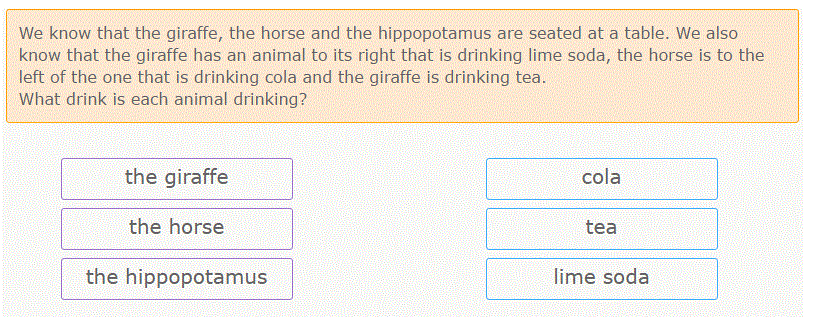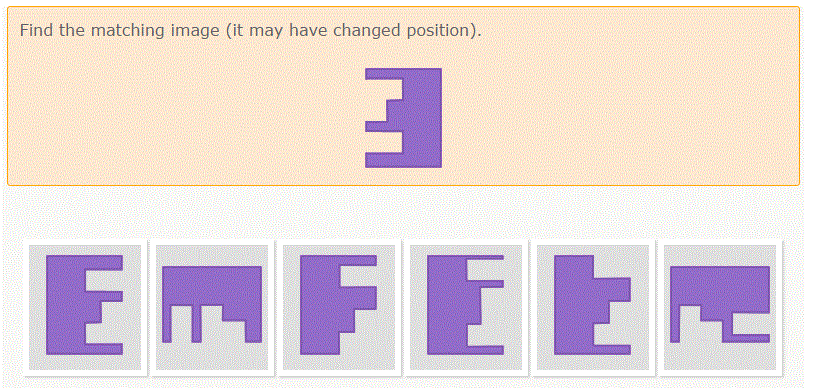In this week’s post, we are going to look at the types of logic exercises that we have at Smartick.
Logic exercises are very important for putting thoughts in order, for expressing them clearly, for analyzing, for deducing correctly and finally, for solving problems that we’ve never seen before.
We think it’s essential that our students start practicing logic problems at a young age in order to develop their ability to solve new problems that they’ve never learned how to methodically solve before.
The logic exercises are classified into 4 independent sections:
Spatial-temporal reasoning:
Spatial reasoning tests the ability to mentally visualize objects, such as the ability to imagine an object in different positions, sizes, shapes, and forms without losing its characteristics. For example, rotating images or mentally constructing shapes from a design.
This ability to correctly perceive space is useful for orienting ourselves using maps and it allows humans to create pictures, build 3D structures. This is why it’s so important for professionals like architects, painters, engineers, sailors…
Activities:
- Shape development
- Mechanics
- Spatial Organization
- Spatial Orientation
- Temporal Sequences
- Temporal Problems
Numerical Reasoning:
Numerical reasoning is the ability to understand, structure, organize and solve problems using a mathematical method or formula. It implies identifying and determining the appropriate mathematical operations and carrying out the corresponding calculations in order to solve mathematical problems. This ability allows us to find diverse ways to solve problems and activities.
Activities:
- Numerical Riddles
- Numerical Differences
- Puzzles
- Venn Diagrams
- Number Series
Logical Reasoning:
Logical Reasoning is an ability that allows us to solve problems. It makes use of our understanding to consider different propositions, using what we already know or what we believe to know to the unknown or lesser-known.
Activities:
- Logical Riddles
- Logical Analogs
- Deduction
- Pairs
- Propositions
- Logic Series

Verbal Reasoning:
Verbal reasoning is all about the ability to reason with verbal content, establishing between them a relationship, classification, order, and meaning.
Contrary to popular belief, verbal reasoning is an intellectual ability that tends to be poorly developed in most people. At the academic level, for example, subjects like literature focus on objectives like spelling and grammar, but they don’t teach the methods of self-expression that students need to fully use language.
Activities:
- Riddles
- Verbal Analogies
- Out of Place Words
- Synonyms and Antonyms

At Smartick we offer children the 4 types of logic exercises so they continue developing their logic and reasoning abilities according to their overall advances. Logic sessions are the ones most of our children prefer!
Try our method for free and you’ll see that math and logic can be both effective and fun for children.
Learn More:
- Logic Exercises at Smartick and a Math Riddle
- Learning Logic: Children’s Favorite Smartick Sessions
- What Is Logic and Why Does My Child Need to Work on It?
- Reasoning Games to Improve Mathematics
- Five Logic Exercises to Practice this Summer









